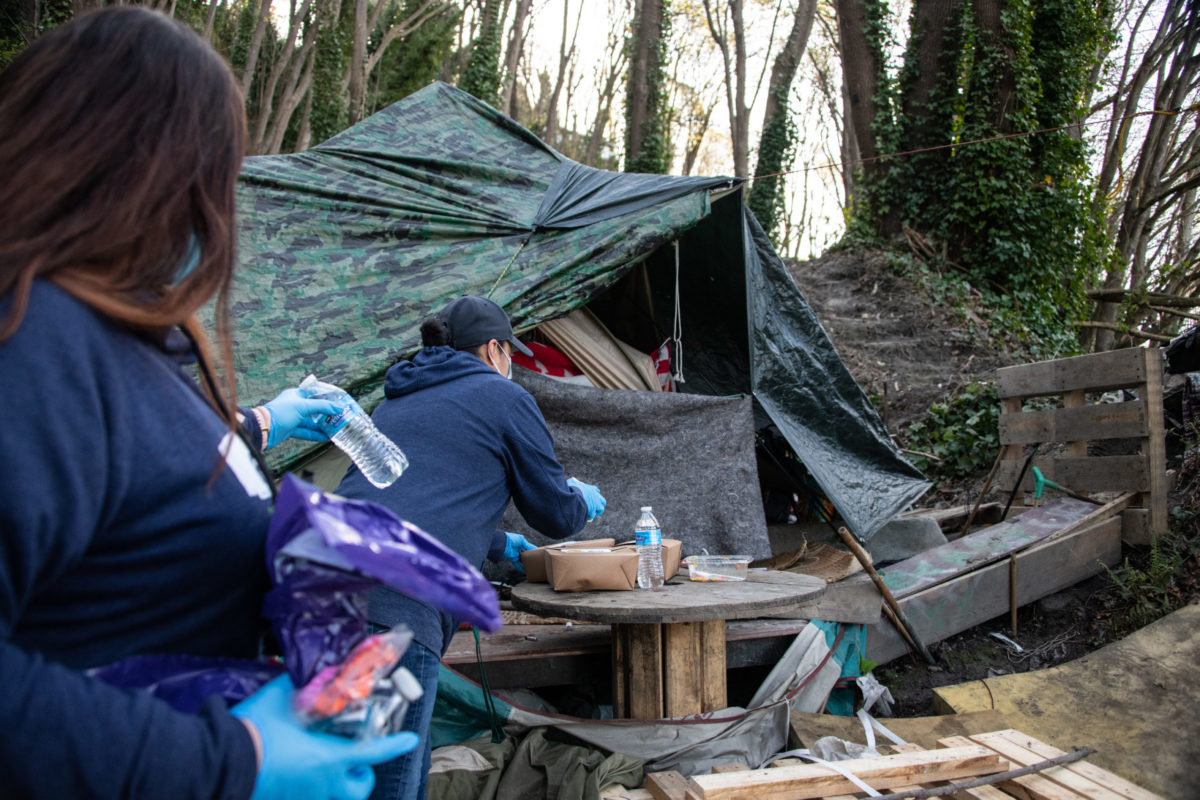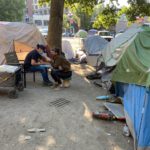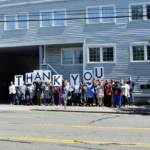
We want to give you an inside look at our response to the COVID-19 crisis from the points of view of our incredible staff. They’ve been working together to keep people safe and supporting our patients and clients as they continue the difficult, daily work of recovery.
We’ve asked some of our team members at REACH and our opioid treatment program to reflect on their experiences during the crisis so far, what they are challenged by, how they’re taking care of themselves, and what good might come out of this.
Chloe Gale is a co-director of REACH. She provides leadership to the team, advocates for better services from city, state, and federal governments, and coordinates with other social service providers to improve the lives of people who are homeless.
You can read more about how ETS is responding to the crisis on our dedicated COVID-19 Emergency Fund page.
One of the many things that has stood out to me in the past few weeks is that we’re finally treating crises as true crises. Seattle labeled homelessness as a crisis and declared a state of emergency nearly five years ago, but now we’re acting as if that is true. We’re finally moving vulnerable people living outside into hotels where they are safe.
Incarceration rates of people, especially people of color who commit low-level drug crimes, have been a crisis nationwide for decades. Now many cities are moving people who are vulnerable out of packed prisons because of health and safety concerns. These are the actions social service providers have been requesting from governments for decades.
What we’re seeing now—bright and clear—is that we’ve always had the resources to address these challenges, we just didn’t have the political will.
My hope is that these bold and necessary actions will continue long after the pandemic is over. We will recognize that our policies are unjust and do not keep the community safer. In fact, we will recognize that our old polices make addressing all public health concerns much more difficult and our communities less safe as a result.
But let me be clear: while we’ve taken some big steps, our community is still not doing enough, particularly for people who are living outside. As my colleague Nichole Alexander wrote in her blog, we do not have enough soap and hygiene supplies, bathrooms are a challenge, and many other basic needs are lacking.
Government offices are closed and people who need to get a government ID or social security card—documents that are tough to keep safe when it is impossible to secure your belongings—are not able to do so. This is a challenge for people who are on waiting lists for housing but need to show ID or a social security card to maintain their place in line.
The REACH team has had to shift our policies as well. We closed the drop-in center to keep staff and clients safe. But to counter that closure, we’ve been increasing the amount of direct outreach we provide. We do not want people to move around to get what they need because public transit isn’t safe. We’re communicating a lot by phone and bringing what people need directly to encampments and places they’re living.

While we work with people who are homeless, we also support clients who have recently been housed. Many of these people are incredibly isolated right now and they are very fragile. Obviously, the positives of being housed outweigh the negatives of homelessness, but the sense of community and interdependence that can develop when no one has doors or walls is difficult to replace when living alone. We’ve been checking in and showing people that we care and haven’t forgotten about them. We are providing what they need, from social interaction to food.
We’re also still supporting the police force and first responders with our LEAD and VITAL programs. In short, we’re doing as much as we can but it’s not enough. Our clients are facing the same mental health challenges we’re all facing around this pandemic, and they’re doing it with added chaos, no services, and minimal support.
It has been a lot for our staff to take on the challenges of our clients in the midst of this crisis. Like the rest of us, they’re dealing with their own families and stressors in addition to those of our clients. We’ve been encouraging them to take self-care seriously. We have a staff-led group meditation and we just recently had a pet party, where we all got on video with our pets. We’ve also been increasing online support for staff in recovery, as disconnection and added stress can exacerbate their challenges.
While this crisis has made our jobs tougher, we’re prepared. We know how to build relationships and we know how to support our people. Every day, we come up with a million little solutions that make people safer and healthier.
We’re also used to working in crisis mode; being homeless is always a life-threatening emergency. Our people die regularly from diseases that could have been cured if they were living inside or had the care they needed, crimes that could have been prevented with a locked door, or from the pain and loneliness of being forgotten.
While many in the world may be resigned to the “inevitability” of homelessness, we continue to fight this injustice in any way we can, no matter the circumstances.




